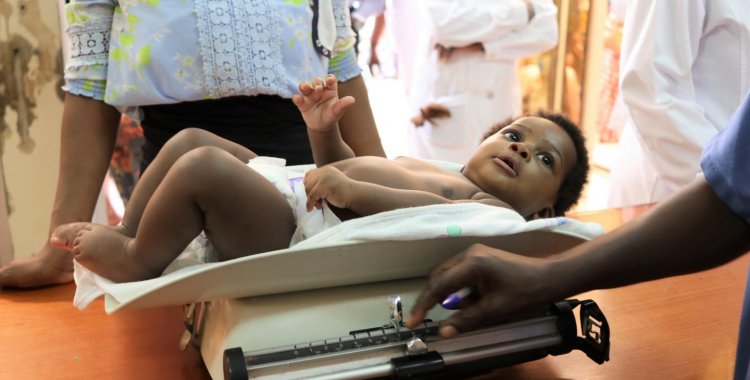The report "inclusive public policies from a gender perspective", by the non-governmental organization Mosaiko, is the result of 149 group interviews and surveys conducted between June 2019 and November 2020 among 4692 households in 15 municipalities in the provinces of the Uíge, Luanda, Benguela, Huambo and Huíla.
"There are a significant number of women who are choosing not to have their births in hospitals. It is shocking and it is transversal, both in rural and urban areas", told Lusa Verónica Pereira, coordinator of Mosaiko's communication office, explaining that women prefer to have home births after a first bad experience in a hospital unit.
This bad experience, explained the investigator, has to do with "the verbal abuse to which they are subjected in hospital environments by doctors, nurses and auxiliary staff", as well as with the corruption and blackmail that is carried out.
"There are real human rights violations in hospitals (...) and at a time when women are more vulnerable," she lamented, in a telephone interview with Lusa.
According to the study, using the year of the last pregnancy as a reference, 49.6 percent of births were made at home, against 42.8 percent in a public hospital.
The figures show that home births are more frequent in rural areas, where 71.2 percent of births were performed at home, but even in urban areas it is 29.0 percent of the total.
Since the period 1995/99, there has been a reduction in the proportion of births performed at home and an increase in births in health facilities, but from 2014 onwards the trend was reversed.
Mosaiko recalls in the document that, for the World Health Organization, childbirth in a health unit is strategically important to reduce maternal mortality, especially when the childbirth is assisted by qualified health professionals.
Without medical care, he stresses, pregnant women are at greater risk of dying from hemorrhage, obstruction during labor, eclampsia, consequences of malaria and other diseases.
Most maternal deaths and morbidities happen soon after birth, and this period is also dangerous for babies: 30 percent of infant deaths happen during the first four weeks of life and most in the first few days, right after birth.
According to the report, the majority of women choose to have their children at home "not only because of the lack of services in the immediate vicinity, but also because of a range of factors related to physical abuse, discrimination and abandonment, non-confidential care, clinical negligence and verbal abuse. , psychological and rudeness of the service team".
The women interviewed, particularly in urban areas, show that they need reassurance that they will be treated with dignity and respect during childbirth, the study reports.
In Viana municipality, the report's authors exemplify, women who had recent births described that medical staff used abusive language, denied services and demonstrated a lack of compassion.
Despite these complaints, "there is no direct accountability" of health professionals, because victims often do not go to justice or have nowhere to turn, said Verónica Pereira.
"Actually, it's very rare that we have doctors who are turned away or sanctioned in any way because they've misbehaved," she said.
Access to justice is another of the areas addressed by the Mosaiko report, which concludes that 53 percent of the women interviewed do not turn to anyone, "that is, they remain silent when they are involved in conflicts", namely related to robbery and theft, violence domestic or parenting, said the investigator.
Verónica Pereira explains this situation with the lack of knowledge about their rights and the instances to which they can turn, but also "with the fact that they themselves feel that in these instances and in these means of appeal they are not welcome".
Many courts and police stations "are very hostile to women", particularly in cases of domestic violence, she exemplified.
It is already difficult for a woman to go to court because often her own family tends to advise her to put up with violence, because it is culturally accepted.
"Then, when she manages to go to a police station, police officers say that this is an issue that must be resolved at home or with the family," said Verónica Pereira.
The Social Research on Inclusive Public Policies from a Gender Perspective is part of the Promoting Advocacy for Inclusive Public Policies in Angola (PAPPIA) project, implemented by Mosaiko - Institute for Citizenship, in partnership with the Fé e Cooperación Foundation (FEC), co-financed by the European Union and Camões - Institute for Cooperation and Language.
Bad experiences in previous births lead Angolans to choose home birth
Angolan women are increasingly choosing to have children at home because of poor past experiences in hospitals, including physical and verbal abuse, reveals a study that counts home births at nearly 50 percent.







